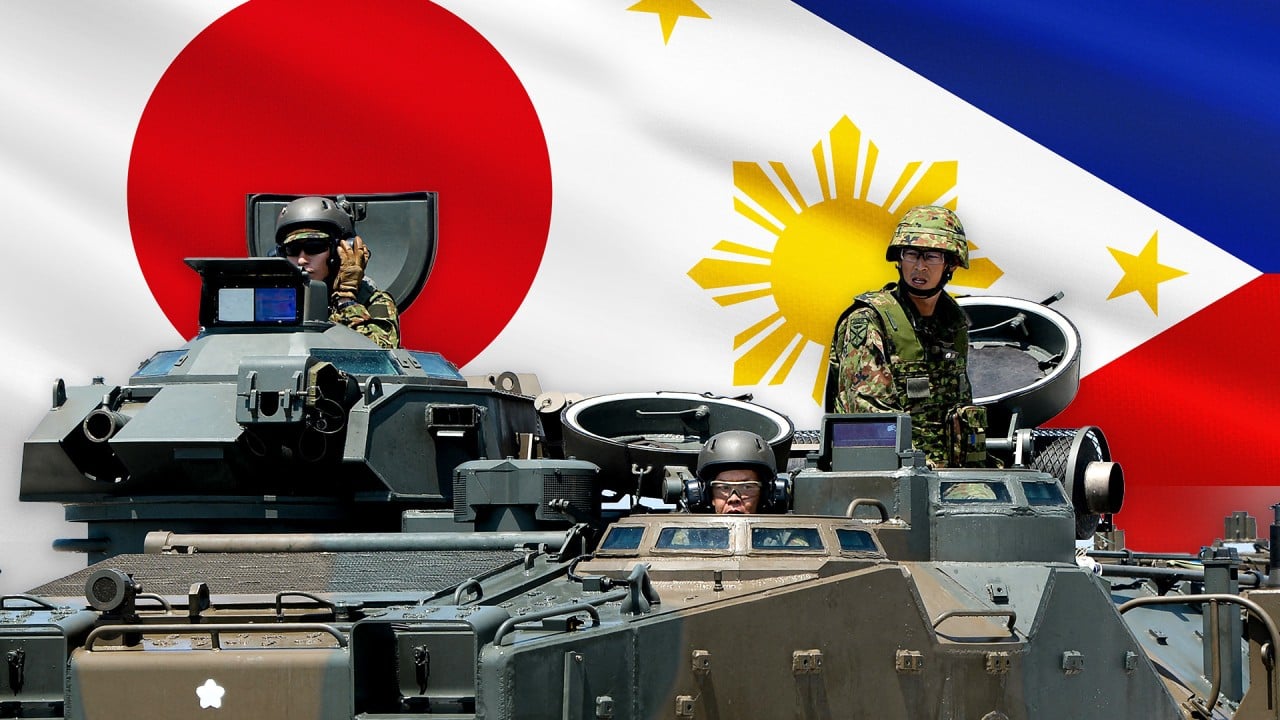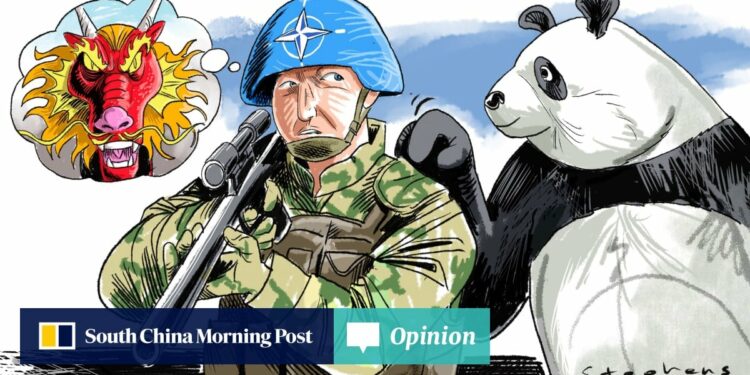Last month, Nato Secretary General Jens Stoltenberg revealed that European defence purchases have generated over US$140 billion in contracts for US companies, adding: “Nato is good for US security, for US industry and for US jobs.”
Nato’s 2022 strategic concept identified Sino-Russian collaboration as a major challenge but did not classify China as a potential threat, unlike with Russia. Since China first appeared in Nato’s narratives in 2019, the US has leveraged Nato to advance its primary geostrategic concern: containing China.
02:58
China rejects Nato claim of being ‘decisive enabler’ of Russia in Ukraine war
China rejects Nato claim of being ‘decisive enabler’ of Russia in Ukraine war
Over the past five years, depictions of China have become more assertive. But the US has not succeeded in getting Nato to see China as a security threat equivalent to Russia. This suggests a divergent European approach.
US Secretary of State Antony Blinken maintains Brussels is “doing exactly the same” as Washington but Europe’s policy is less intense: less pressure on 5G, a smaller tariff on electric vehicle imports, no ban on the transfer of advanced technologies and less spending on subsidies to boost domestic manufacturing. There also seems to be a noteworthy disparity between what Stoltenberg asserts as agreed upon and the actual consensus among allies.
While the US focuses on the Indo-Pacific, Europe remains primarily concerned with Ukraine. Nato is a deterrence organisation with a distinct geographic focus, not an entity tasked with solving all global issues. Its defence and deterrence capabilities are concentrated in the Euro-Atlantic region for explicit reasons.
Accordingly, Beijing’s hypothetical “string of pearls” strategy and assertiveness in the South China Sea are not viewed as direct coercion in European capitals, where depicting China as a significant threat seems disproportionate. But China’s de facto support for Russia in Ukraine – through trade, diplomacy and narrative – poses a greater concern for Europe, emphasising that Nato should remain focused on the Euro-Atlantic front.

05:28
Should China be concerned about the latest Japan-Philippines security pact?
Should China be concerned about the latest Japan-Philippines security pact?
While an increased Nato presence in the Indo-Pacific might be preferable for US allies in the area, it is not necessarily suitable for Europe, which must ensure a balanced approach to prevent the dilution of its efforts and resources.
Undeniably, America’s Indo-Pacific card carries consequences. It undermines genuine security threats on Europe, diverts attention from critical regions like the Atlantic and Mediterranean, and heightens China’s concerns over Nato as a security hazard, exacerbating unease over Europe’s weighty reliance on US security while nourishing anti-Western narratives.
Europe could adopt a definitive approach by clearly delineating Nato’s strategy for three pivotal theatres: Ukraine, Taiwan and the broader Indo-Pacific. This involves specifying its security objectives in each region, whether prioritising negotiation, diplomacy, deterrence, sanctions, coercion or not engaging at all.
Nato’s role in Ukraine has been to provide support without direct intervention. Given that it refrains from directly intervening in a conflict on the continent, Europe will be even less inclined to engage in matters over 10,000km away, where no agreement operates.
Europe’s direct interest in the Indo-Pacific is limited to France, which administers territories in the Indian Ocean. Yet it was also France that blocked the idea of a Nato office in Tokyo, underscoring the operational limits in regions beyond Nato’s traditional scope.
There is an opportunity for China to commit to peace by dissuading Washington from leveraging Nato against it. China can urge Russia to withdraw from Ukraine, showing its commitment to European security, positioning itself as a stabilising influence and preventing Nato’s potential enlargement into the Indo-Pacific.
Coming leadership changes – Dutch Prime Minister Mark Rutte for Stoltenberg as Nato secretary, Estonian Prime Minister Kaja Kallas for Josep Borrell as the top EU diplomat, and potentially Trump replacing US President Joe Biden – could significantly influence global defence. The likely re-election of Ursula von der Leyen as European Commission president could deepen the EU’s alignment with Washington’s stance on China.
Europe and Nato can chart a course that not only addresses pressing security concerns but also fosters a balanced and forward-thinking approach to international relations. This is essential to cementing Nato’s role as a cornerstone of global security in the decades ahead.
Sebastian Contin Trillo-Figueroa is a geopolitics analyst with a specialisation in EU-Asia relations
Source link : https://amp.scmp.com/opinion/world-opinion/article/3270364/china-threat-europe-natos-china-stance-may-rest-its-answer
Author :
Publish date : 2024-07-15 21:30:08
Copyright for syndicated content belongs to the linked Source.



